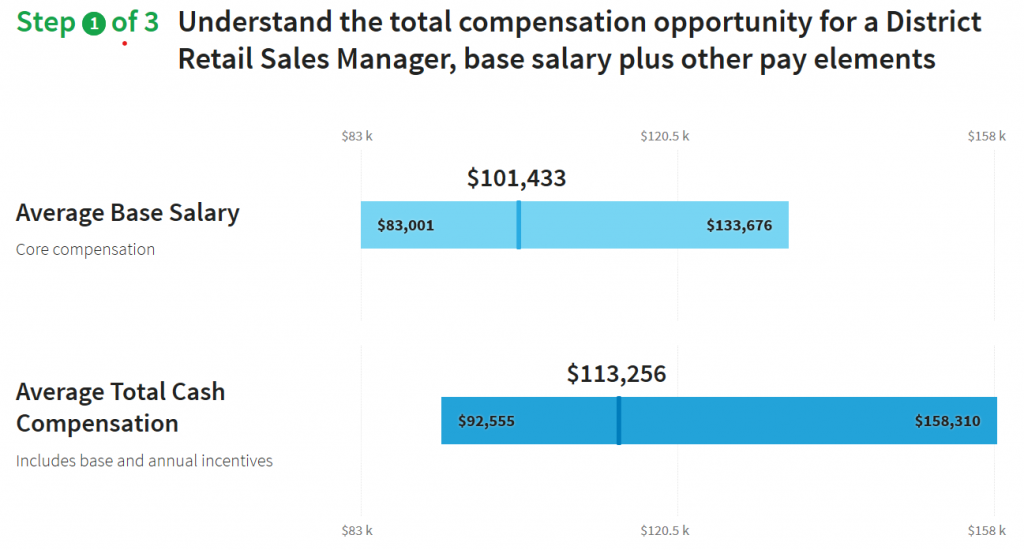
It is graduation season — sparking many articles and discussions regarding jobs and careers for Millennials. First, I’d like to say congratulations to all of the recent high school and college graduates — you have reached an important milestone. Second, I’d like to advise you to avoid some of the pressure and hype around careers and job searching. Current discussions seem to focus on pressure to immediately find your dream job at a “cool” company and change the world overnight. The reality is that not everyone can work at the “cool” companies — nor is it a good fit for many people.
Brand Name Flash
Tech jobs in Silicon Valley and consulting for powerhouse organizations attract the most attention – companies like: Alphabet (Google), Amazon, Facebook, Salesforce, Uber, Tesla, Apple, Time Warner, The Walt Disney Company, Comcast NBC Universal, AirBnB, Netflix, McKinsey and Company, and Workday.
These top companies are certainly flashy — they have brand recognition and high visibility. Many people, especially recent college graduates, see those companies as the pinnacle of success. Like all companies, these top companies have pros and cons as employers — there is a dark side to all of the perks. Workers might gain status for working for a famous brand company and pay for it by working 80+ hours a week, living in expensive Silicon Valley or traveling constantly.
The Down side of Flash and Perks
Recently, I read an exchange in the comments section of a career blog. A young woman was seeking advice on whether or not to pursue an MBA and go work for one of the big consulting groups. She was drawn by the prestige and paycheck, but she was not particularly interested in the work itself. Commentators had a range of responses. Supporters focused on the value of a high-profile job to build a resume and kick-start a career. They indicated that the sacrifice of getting an MBA and doing uninteresting work was worth the price. Other commentators keyed in on the woman’s lack of interest in the work, preoccupation with the superficial elements of the job, and required commitment to get an MBA to be qualified to even apply for the role. They encouraged her to try a variety of jobs and then to seek a role that fit her needs and interests. Since she was just in the contemplation stage, I don’t know the outcome for her story. But this discussion highlighted the complicated nature of choosing a career path — and the many elements that must be considered and weighed.
Can Free Food be a Bad Thing?

There are some benefits for working for a flashy brand – such as the opportunity to do cutting edge work in a company that drives toward bold and audacious goals. But having “bragging rights” by working for a popular brand can’t make up for a bad job or poor company fit. Some of these companies are notorious for issues around burning people out, poor publicity, political entanglements and more. For example, free gourmet meals in the cafeteria are often heralded as great perks – which they are. But these free meals also serve the company and increase productivity by shortening time spent at lunch, keeping employees on campus and making it easy to work into the evenings.
Millennials, recent college grads and others should consider more than the brand name of a potential employer. Beyond name recognition, there are considerations such as the type of work, growth opportunities, stability, location, pay, work-life balance, etc. In many cases, it will make sense to trade flash for an opportunity to build an amazing and profitable career in a less-visible company or industry. Less-flashy companies and industries are still competitive and have high standards, but you generally are not competing with as many applicants. The work will be challenging and interesting, but you are likely to have more choices about where to live and how to balance your life.
Hidden Employer Gems in the Fortune 500
The Fortune 500 list ranks US based companies by their total revenue — thus providing a list of large companies and gauging their relative strength over time. Many of the flashy companies with popular brand names appear in the Fortune 500 list, such as: Apple (#3), Amazon (#5),
Alphabet (Google, #15), Microsoft (#26), and Facebook (#57). However, many names on the list, often business-to-business companies, are less well-known. You’ll find companies that do not have as much flash, but that are large enough to offer opportunities in industries like manufacturing, transportation and retail. These are large companies located in various places across the US that need talented and capable employees.
What jobs exist outside Silicon Valley?
Being on the Fortune 500 list does not guarantee that a company is a great place to work, but it does suggest that there are job opportunities available. These companies need workers with high-tech skills and people with expertise in sales, strategy, finance, accounting, engineering, HR, data analysis and more. But some of these companies are not going to pop to mind when someone is job searching. Broaden your scope, review the full Fortune 500 list, and maybe you will find find some hidden gems.
Current culture glorifies work in the start-up world — hyping the intensity and the potential to be part of something big from the beginning. However, many start-ups work people hard, require living in expensive Silicon Valley and end up failing. Other industries provide challenging careers with more stability. For example, the manufacturing industry offers many opportunities — both white collar and blue collar. They need college-trained workers such as engineers, programmers, managers. They also have opportunities for people with good skills and a good work ethic but less education.
Consider Skilled Trades

One of the biggest needs in manufacturing is skilled trade jobs. Skilled trades encompass roles such as electricians, welders, machinists, plumbers, HVAC technicians, etc. These careers require formal training, but the training is often comprised of two-year degrees, apprenticeships or on-the-job training. A broader look at “hot jobs” from the Society of Human Resources (SHRM) site in January 2017 (“2017 Hot Jobs Include IT, Health Care, Sales and Skilled Trades” by Roy Maurer) showed that skilled trades are in high demand with a 8% increase in jobs since 2012 with average hourly earning at $21.38. With so many Millennials focused on “flashy” companies and jobs, fewer people have pursued skilled trades. Consequently, many people in skilled trade jobs are getting older and closer to retirement — creating a looming shortage of these critical workers.
Build a Career in Retail

People often seem to consider retail jobs as “throw-away” jobs. Some graduates will take a retail job as a placeholder until they can find a “real” job. That feeling of being temporary is reflected in high turnover rates for the basic roles (sales, cashiers, etc.) in stores and restaurants. Rethink your perception of retail – many of the Fortune 500 companies are retail companies such as Walmart (#1), Costco Worldwide (#14), Walgreens Boots Alliance (#17) and Home Depot (#27) to name a few.
Retail Jobs Can be Profitable
People who commit to the retail industry can build great careers. Due to high turnover, there is often the opportunity to advance quickly — especially if you are reliable and productive and able to relocate. A cashier could move into a lead role and then a manager role and then into a multi-store role like a district manager (DM). These DM roles are responsible for multiple stores and generally operate with a lot of autonomy. In a sense, they run their own business (profit and loss statement) within the structure of the bigger company. For a medium sized retailer, a DM with a strong district could be running a $30–50 million a year business. After the DM role, there are usually regional roles and corporate roles that offer even more career growth. Salary.com shows the average salary for a District Retail Sales Manager to be $101,433 with some going up to the $150s. In addition, there is often a bonus and stock incentives to go along with that – resulting in an average total cash compensation to be $113,256.

There are a lot of amazing opportunities available to recent grads, but you need to do some digging to uncover many of them. Don’t get so focused on the flashy jobs that you ignore other great opportunities. Get to know yourself — your interests, skills, lifestyle, and then search for a job that fits you. You might end up as a top software engineer in Silicon Valley or as a skilled trade plumber owning your own business, or as someone who tries many options before choosing a path. Take a breath, consider all of your options and define success for yourself — the world is waiting.
Parts of this article were originally published as Supercharge Your Career in these Unsung Industries on Medium.com in May 2017.



